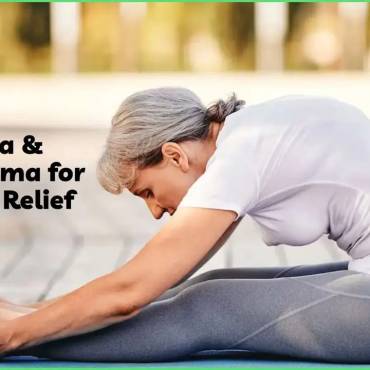People with insomnia tend to have trouble falling asleep or staying asleep throughout the night. Insomnia is often associated with an underlying mental or physical issue. Wondering how to sleep faster? Create a comfortable sleep environment and follow a relaxing bedtime routine to enhance sleep quality. Both these tricks are perfect insomnia cures and make a world of difference to your quality of sleep.
What is insomnia?
Insomnia is a common sleep disorder that develops when you have a hard time initiating a night of sleep, and you struggle to fall asleep, wake up at midnight, and wake up too early or are unable to fall asleep.
Causes of insomnia
A variety of physical and psychological factors can cause insomnia symptoms or the reasons for insomnia disorder. The need for an effective treatment is great. The problem of insomnia has reached an alarming state with massive consequences, as per data suggested by the National Sleep Foundation poll. Around half of adults in the USA experience sleepless nights at least twice or thrice a week because of insomnia. This not only contributed to reduced quality of life but also caused a significant reduction in productivity at workplaces. If you are spending more time trying to fall asleep rather than sleeping, it may be worth trying insomnia cures. Do you struggle to get sound sleep, or are you looking for tips on how to sleep faster? This information guide covers some science-based tricks to help you fall asleep more quickly.
How to treat insomnia?
The cure for insomnia and how to treat insomnia disorder approach may vary from patient to patient. People with insomnia enter a vicious cycle because of their previous sleepless nights. Such people become anxious and have trouble falling asleep right away. The more you spend a sleepless night in bed, the more their anxiety increases, which makes it more difficult for them to fall asleep.
Natural ways to treat insomnia
A large population pursues natural remedies or behavioural therapy as their insomnia cure because of their long-lasting effects. Read out these natural ways that may help you overcome insomnia disorder.
-
- To break the anxiety cycle that may come to you with a sleepless night, prefer going to bed when you feel sleepy. If you can fall asleep within 20 to 25 minutes, get out of bed, and do a relaxing activity that you enjoy the most. This may include reading or listening to calming music. Once you feel sleepy again, return to your bedroom. Various research studies have revealed this reconditioning therapy as an effective insomnia
- Create a sleeping environment; make sure your bedroom is quiet, the lights are dim, and the temperature suits you. A noisy place, bright lights, or a room that is too hot or too cold can all interfere with your sleep. Even an uncomfortable mattress can deprive you of sound sleep. You can try earplugs to block the noise that comes from an open window, fan, or cooler. Keep the room cool and switch to night bulbs, or you can wear an eye mask to block out lights. Experiment with the mattress firmness and pillows to provide support if your body is looking to sleep comfortably.
- The relaxing technique is another strategy that works for many people with insomnia. Relaxing training also referred to as progressive muscle relaxation, involves breathing exercises that help reduce anxiety at bedtime. Practicing these tricks can help you gain control over your breathing patterns, heart rate, mood, and muscle tension so that you can relax and fall asleep faster.
- Stick to a sleep routine – Going to bed and waking up at the same time daily will program your body to sleep better. Following a sleep pattern will help you get back into a regular sleep rhythm.
- You can also try sleep restriction therapy, another effective insomnia cure that works for people with insomnia. What you all need to do is calculate your average sleep time for one week and then limit your nightly sleep time to that average. Gradually add more time to your sleep routine each night until you get a more normal night’s sleep. Avoid naps longer than 15 to 20 minutes during the daytime. In some people, napping can make it difficult for them to fall asleep. Individuals undergoing restriction therapy must avoid driving a car, operating a machine, or indulging in an activity that requires alertness until they are getting enough sleep at night.
These behavioural changes are part of a non-medicinal treatment called cognitive behavioural therapy and are considered effective in most people with insomnia.
People who have chronic insomnia, which cannot be corrected with the alternative treatment called behavioural therapy, may need over-the-counter products and prescribed medication for insomnia. One should discuss with a health care specialist before trying to treat insomnia with medicine, herbal tea sleep, or other OTC products. The benefits of prescription treatments are limited, and they have risks associated with their use. Some medication for insomnia may help you fall asleep but leave you tired and groggy in the morning.
Also Read: Eight Insomnia Tips to Help You Fall Asleep



